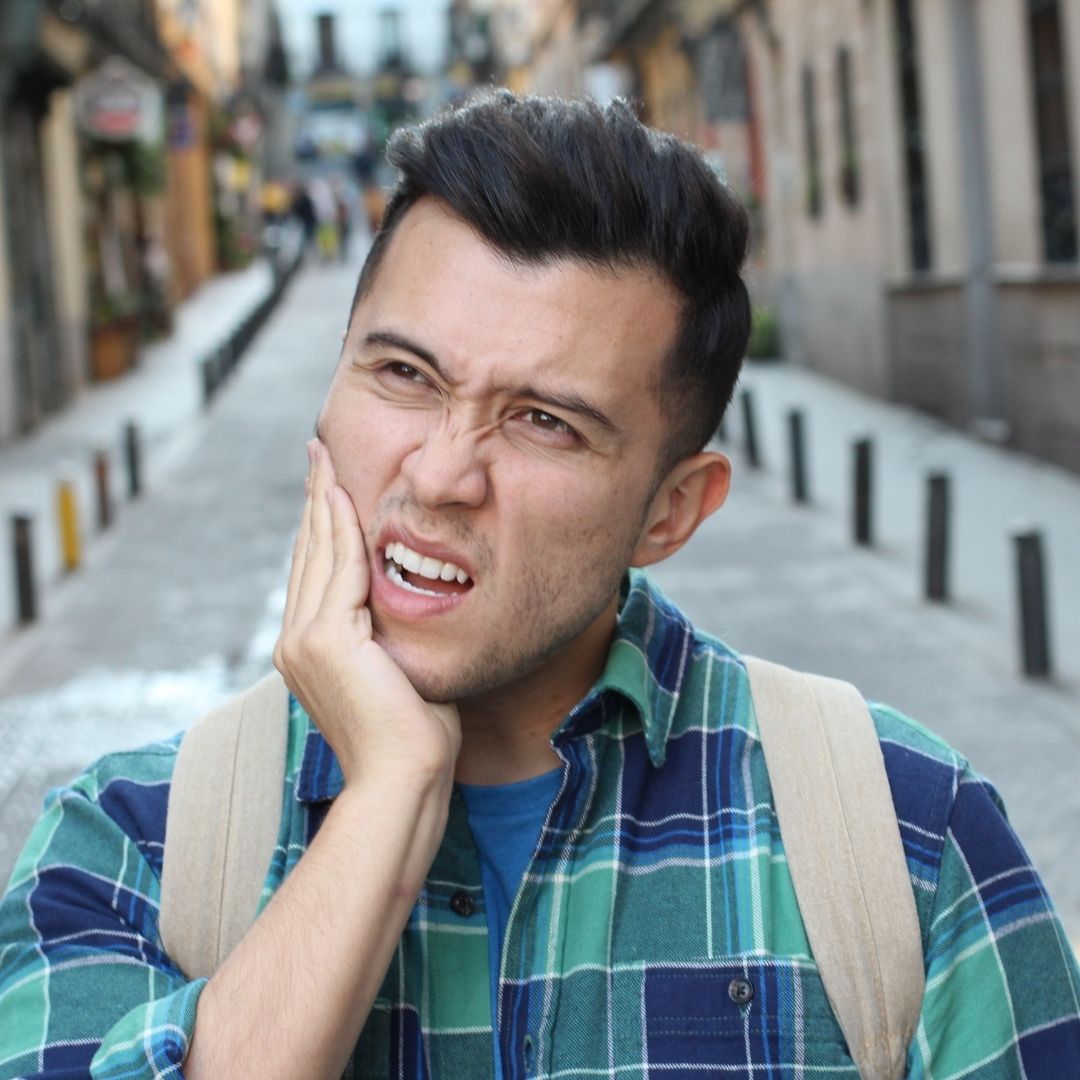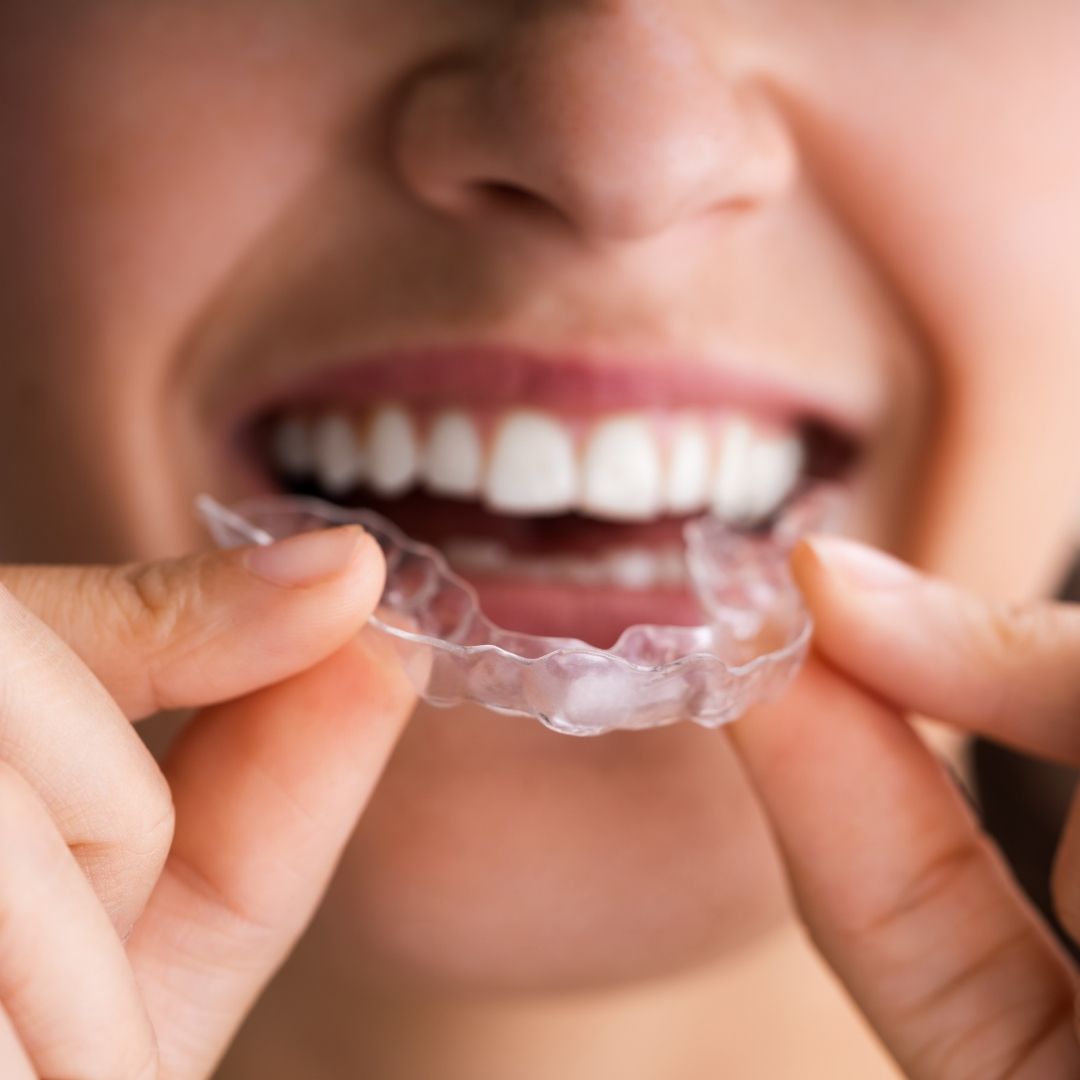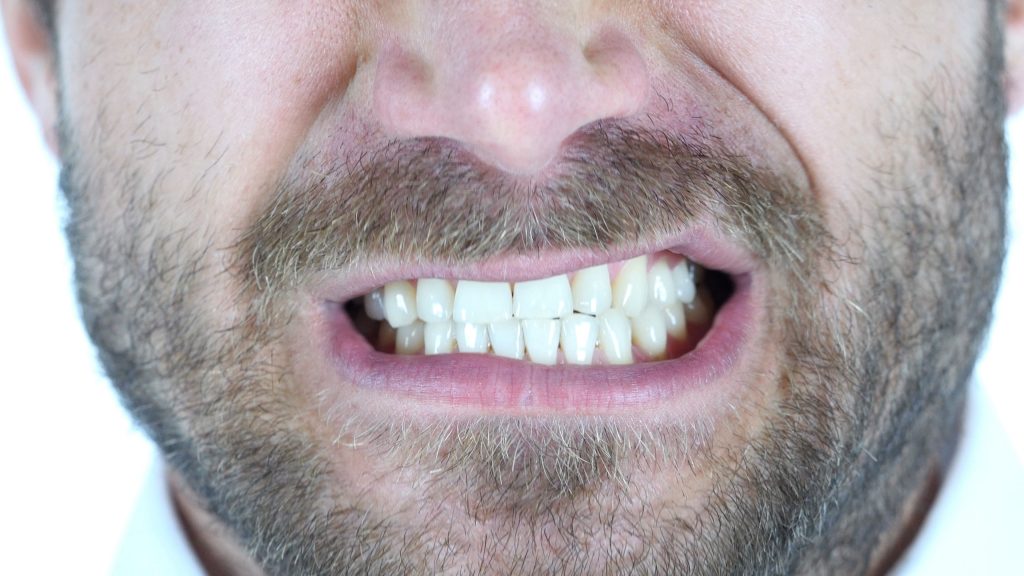Many people grind their teeth occasionally. Bruxism or teeth grinding is the involuntary clenching, grinding and gnashing of our teeth. This can happen awake or in your sleep. This does not usually cause any harm, but when it happens regularly, bruxism can cause teeth damage, and also other health complications.
Symptoms
Most people are not even aware of teeth grinding, but there are some symptoms that are tell-tale signs of bruxism. These include:
- flattened teeth
- fractured, chipped or loose teeth
- worn-out enamel, exposure of the deeper part of the teeth
- increased tooth pain or sensitivity
- tired/tight jaw muscles
- locked jaw (won’t open or close completely)
- jaw, neck, ear or face soreness
- dull headache
- damaged inside cheek
- sleep disruption

Cause
It is still not clear what exactly causes bruxism, but most doctors agree on that it may be a combination of physical, psychological and genetic factors. In addition, awake and sleep bruxism’s causes can be different things.
There are several factors, that can increase bruxism, such as:
- Stress
- Anger or frustration
- Young age (bruxism is common in young children)
- Medications or other substances
- Genetic factors (bruxism can run in the family)
- Medical disorders
- Smoking
- Caffeine
How to reduce bruxism?
Here is a list of simple things, that can help you reduce teeth grinding:

- Have regular dental check-ups: this way any damage can easily be identified and treated
- If you do have jaw pain, try to use an ice pack wrapped in a towel to treat the sore area
- In addition to jaw pain, you can take painkillers, like ibuprofen, to reduce the pain or swelling
- Try to stretch your jaw muscles by doing stretching exercises once or twice a day
- Try to relax before bedtime, and improve your sleep by making the area relaxing and comfortable
- Use breathing exercises or listen to relaxing music to help you relax during daytime
